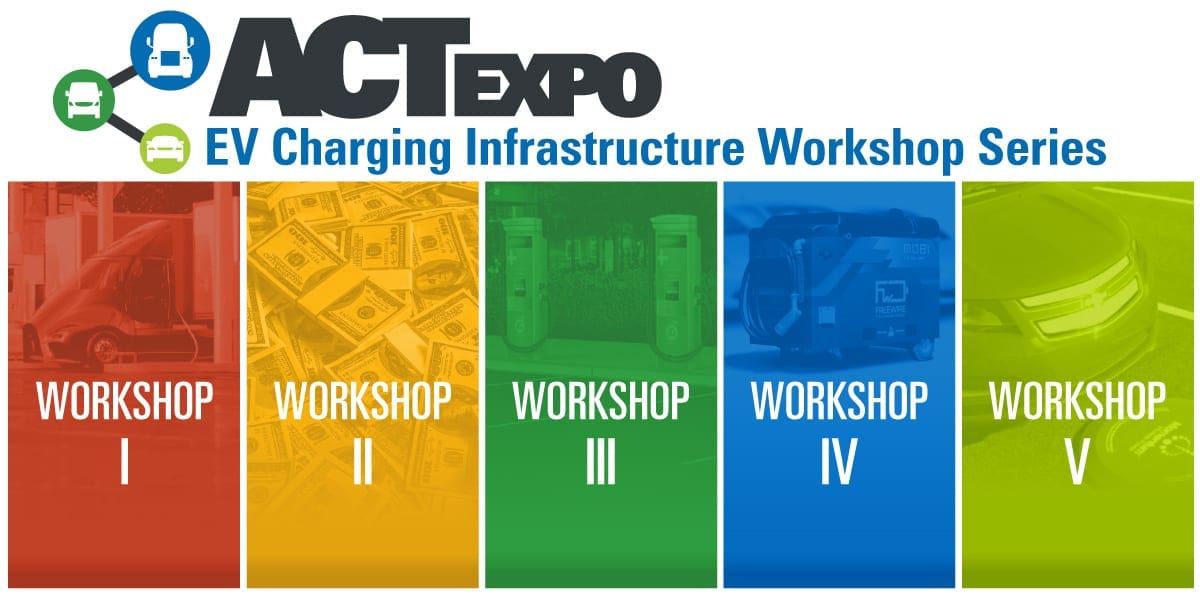The Advanced Clean Transportation (ACT) Expo, taking place April 23rd – 26th in Long Beach, California, announced that it will host a five-part EV Charging Infrastructure Workshop Series that will cover everything a fleet needs to know when developing an electric vehicle charging plan. As OEMs continue to unveil new battery-electric vehicle options and EVSE companies continue to refine their product and service offerings, a key challenge remains—how can fleets build and manage charging infrastructure effectively? Given how vastly different electricity is compared to any other transportation fuel, there are several key considerations that fleets need to be aware of when developing their charging solutions that are likely foreign concepts.
Workshop I: Planning for EV Charging Solutions in Fleet Operations
While much of the industry has given us increasing technology options for fleet electrification, perhaps the harder problem to solve for is how we build out new fueling infrastructure to support these vehicles. Given the vastly different nature of electricity from any other kind of fuel, there are a number of different considerations that go into charging solutions that are foreign concepts to fleets. From the utility side to construction to network providers, this session will cover all you need to know about designing your fleet’s charging plan.
Workshop II: Tackling Cost
Workshop III: The Network
Well developed EV charging solutions are critical to a successful EV fleet operation. Networked charging infrastructure can provide an array of helpful information to today’s data-driven fleet operator, in addition to providing easy reporting capabilities for grants and incentives. Finding the right solution to meet a fleet’s near-term needs and long-term EV growth goals is critical to ensure the efficiency of the initial capital investment. A panel of experts will discuss—and maybe even debate!—the value proposition of software services on top of the charging equipment.
Workshop IV: Mobile Charging
Fleets who have made the commitment to going electric frequently stress that the decision was the easy part, the hard part has been in the implementation. From designing the system to working with the utilities and filing municipal permits, getting infrastructure in the ground for electric vehicles is a process; and sometimes a lengthy and costly one at that. With permit times potentially taking six to 12 months for high power charging stations, a challenge many fleets are faced with is vehicles arriving before the infrastructure is ready for use. Mobile and “temporary” charging solutions provide an interesting option to get fleets up and running with a unit quickly.
Workshop V: Wireless Charging
Images of the electrified future are peppered with vehicles gliding over an in-ground unit that automatically recognizes the vehicle and starts charging it. This future paints a picture of no more posts in the ground and instead, an inductive, wireless future that is connected and automated. Some heavy duty fleets have actually begun steps toward this wireless future with inductive solutions for their electric port equipment and bus fleets already.
View the full ACT Expo agenda here.



